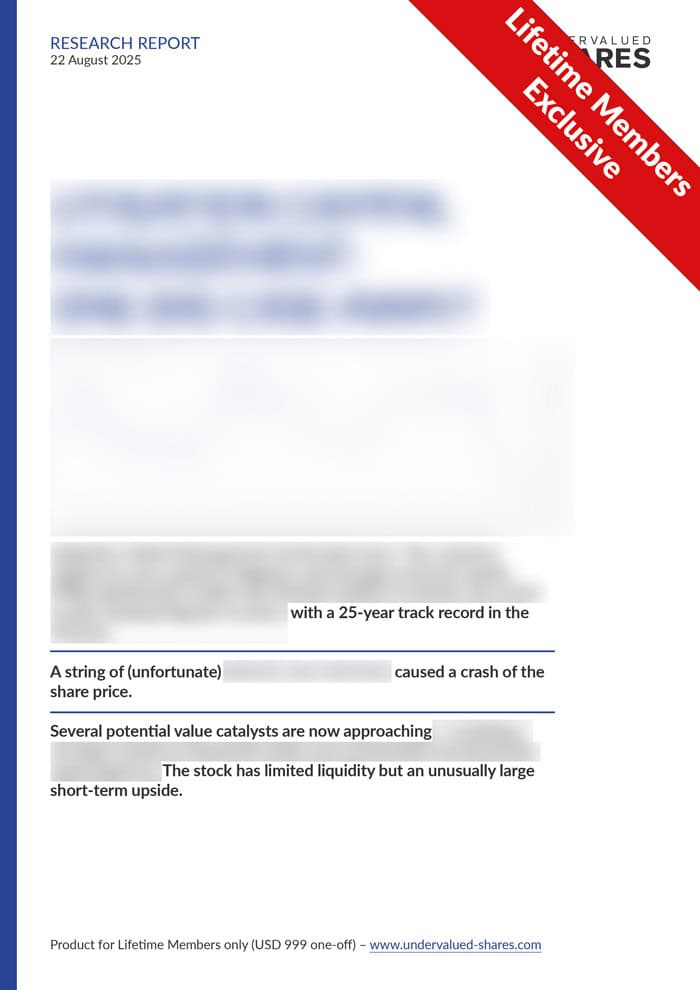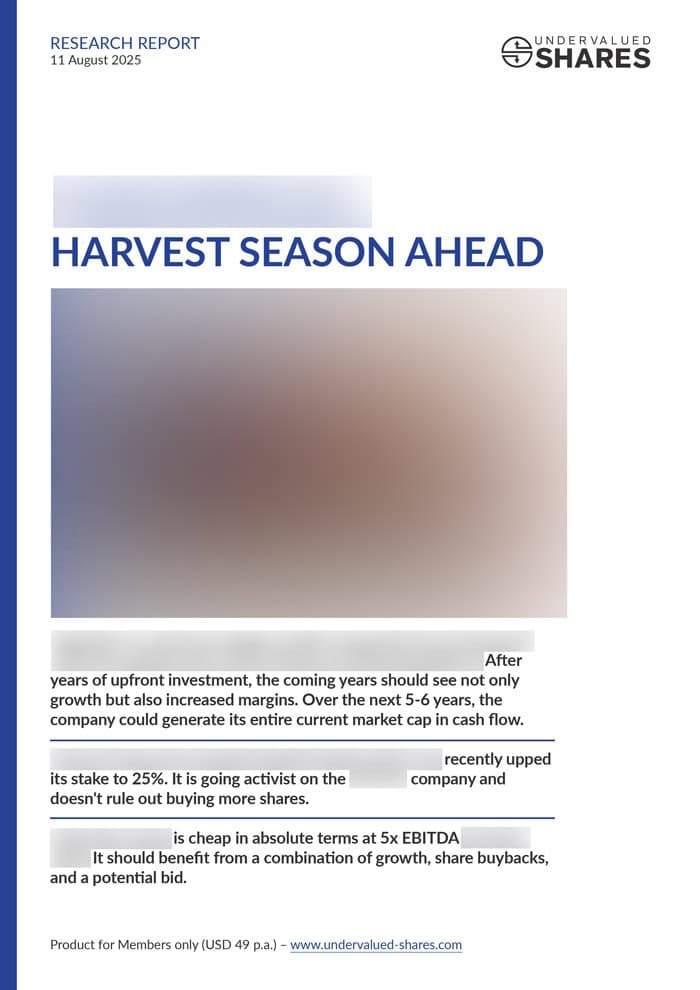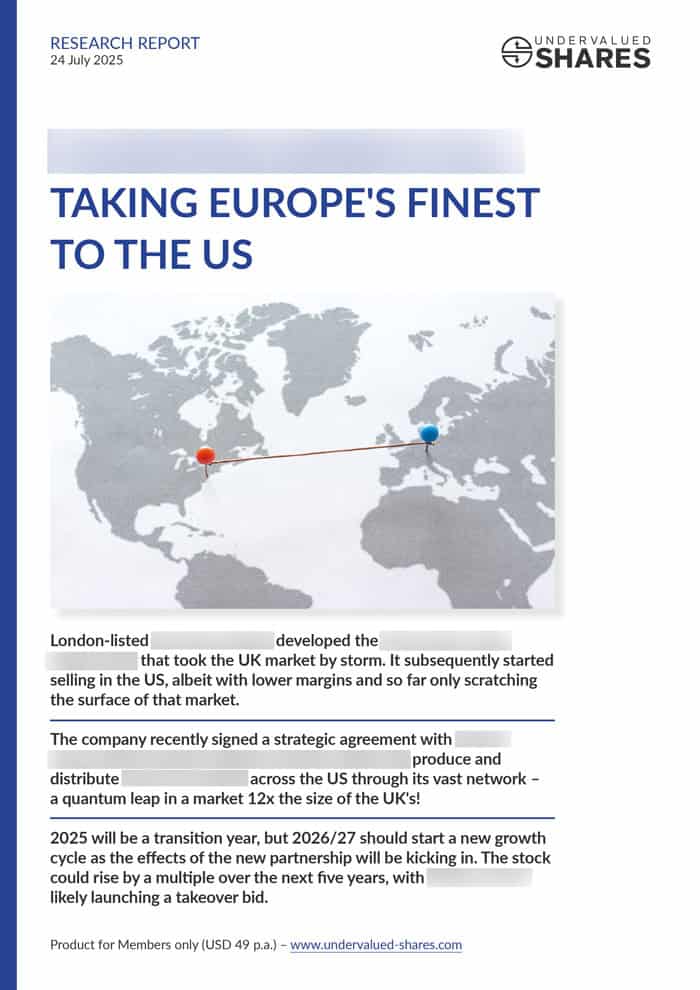Seaport Entertainment Group is a NYSE-listed play on the revival of New York’s southern tip. I visited the neighbourhood to evaluate the opportunity.
How I work (part 2): The 10 worst mistakes of my investing career
By reading today's Weekly Dispatch, you might save millions.
That's what it cost me to write this article.
Just so you know, I didn't start with lots of money. When I made my first investments at age 16, I had saved 30,000 Deutschmarks (USD 20,000 or GBP 10,000 at the time). That was all the money I had earned distributing advertising flyers (since age 10) and working the odd summer job (since age 13).
Over the next 30 years, I have made investment mistakes that altogether have cost me millions in terms of actual losses. Never mind possible gains that I missed out on because I didn't make the right decisions.
These mistakes are among the most valuable lessons I can offer you - lessons that you should only ignore at your own peril.
Most of them are very practical, and you can start to implement my learnings right away. Others will take you years of practice to perfect.
Let's dive right in!
Mistake #1: Not being hyperalert to the constant threat of crashes and "Black Swan" risks
If there is ONE learning you take away from today's Weekly Dispatch, make it this one.
I believe it's the most critical lesson of all.
What truly matters for your investment success, in the long run, is not to be wiped out somewhere along the way by a crash or a Black Swan event.
I repeat: Don’t get wiped out by a freak event!
Just the other day, I saw an article in the Wall Street Journal about people who lost everything during the coronavirus crash: "Bankrupt in just two weeks – individual investors get burned by collapse of complex securities."
The article described one investor who had put his life savings of USD 800,000 into complex securities that were supposed to earn him a safe (and unusually high) income. This investment turned out to be a fair-weather one. Within two weeks, his portfolio got wiped out. He is 67 and retired, making it unlikely that he'll ever manage to get back on his feet financially.
That's the potential nightmare you need to avoid. Make it your #1 priority to secure your investment portfolio against the risk of being wiped out altogether.
Keep the following in mind:
- In the long run, the world gets more prosperous, and stocks keep rising. For as long as you are in on the game, you'll probably end up making money.
- A crash or Black Swan event can wipe you out. If you lose everything and you stop being part of the game, it'll be very hard (if not impossible) for you to recover.
Let me explain this further.
I have been in the investment industry long enough to have lived through four of the worst stock market crashes in history:
- The Long-Term Capital Management crash of 1998.
- The dotcom crash of 2001 to 2003.
- The Great Financial Crisis of 2008/09.
- The coronavirus crash of 2020.
During each crash, I witnessed some colleagues, professional contacts, and friends lose all they had. In one case, a significant fortune (built over 20 years) was lost entirely in the space of just two hours (!) because of a freak development in currency markets. I knew a self-made billionaire who lost everything during the 2008/09 crash. Each of these people had previously thought: "This sort of thing will never happen to me."
Most of them decided to call it quits and never touched the stock market again. Others called it quits despite not even losing everything, but simply because they were so badly bruised by the experience (or had a spouse who thought the stock market had always been a terrible idea in the first place).
I have had my own fair share of experiences during each crisis:
- The Long-Term Capital Management crash barely affected me, primarily because I quickly liquidated most of my investments when the crisis erupted.
- I benefitted mightily from the dotcom crash. I had cashed out before the crash because the market seemed insanely overvalued, and then picked up investments at bargain-basement prices.
- The Great Financial Crisis of 2008/09 was the one I got wrong. I'll talk about this in more detail during one of the upcoming points. In a nutshell, I got severely beaten up. Like, really badly.
- During the coronavirus crash, I did lose money because the prices of absolutely everything dropped. However, not for a single moment was I ever at risk of going under. Also, literally from day one of the crash, I focussed on working out how to benefit from an eventual recovery and the opportunities arising out of it (like the Internet stock I told my Members about in April 2020, which then doubled in six weeks).
As a private investor, no one forces you to have ANY risk management system (as is the case with banks or financial services firms). You are free to bet all you have on one particular investment and manage your portfolio as you see fit.
Crashes and Black Swan events occur every decade or so. You can go on for a long time before encountering one, but when you do, you'd better be prepared!
Sadly, no one teaches you about this in school or university. You will have to do it yourself.
If you haven't read it already, get a copy of Nassim Nicholas Taleb's bestselling book: "The Black Swan: The Impact of the Highly Improbable". It's a classic by now and not a particularly original book recommendation, but it will put you into the right mindset to plot your next steps.
Risk management is a term that appears to be both boring and intimidating.
However, anyone can learn how to manage their investment risks. It can start with a few simple questions:
- How much of your savings do you commit to individual stocks?
- Should you take on leverage, and if so, how much?
- When, and how, do you sell?
- Should you hedge positions?
- Do you need to operate with stop-loss limits?
- How much of your net wealth should you allocate to stocks?
To add to the weight of the subject, there are no fixed answers for anything. The answers always depend on your situation.
However, there is good news for you.
Like any other intimidating subject, you can break it down into smaller steps. Start with a few easy questions, and then build up your knowledge and understanding of the issue over the years.
You HAVE to be knowledgeable in this area. No one else can take that job off you.
No ifs, no buts. It's imperative that you do this.
I'd go as far as saying that you could even stop reading this article now. If this were the one lesson you took away from today's Weekly Dispatch, I would have done my job already.
During these past crashes and Black Swan events, I also witnessed countless people suffer enormous losses but stay in the investing game regardless. All of them eventually recovered, and their investments reached new heights. Admittedly, for some, it happened more quickly than for others. But the rising tide eventually got all of them back to an even better place than before.
Proper risk management and a bit of grit will take you a long way.
To help you navigate your way around the subject, I have started to draw up a plan on how I can help you. I always wanted Undervalued-Shares.com to also have an educational angle. My Weekly Dispatch "Post-corona: A golden age of informed risk management?" is just a taste of what's to come during the remainder of 2020 (and 2021).
In the meantime, please do buy books, use the Internet, or speak to others about their experience in building a risk management system.
The next crash or Black Swan event will happen eventually. However, the world will continue to do better after each such event. You just need to make sure that when it arrives, you don't lose everything within two weeks.
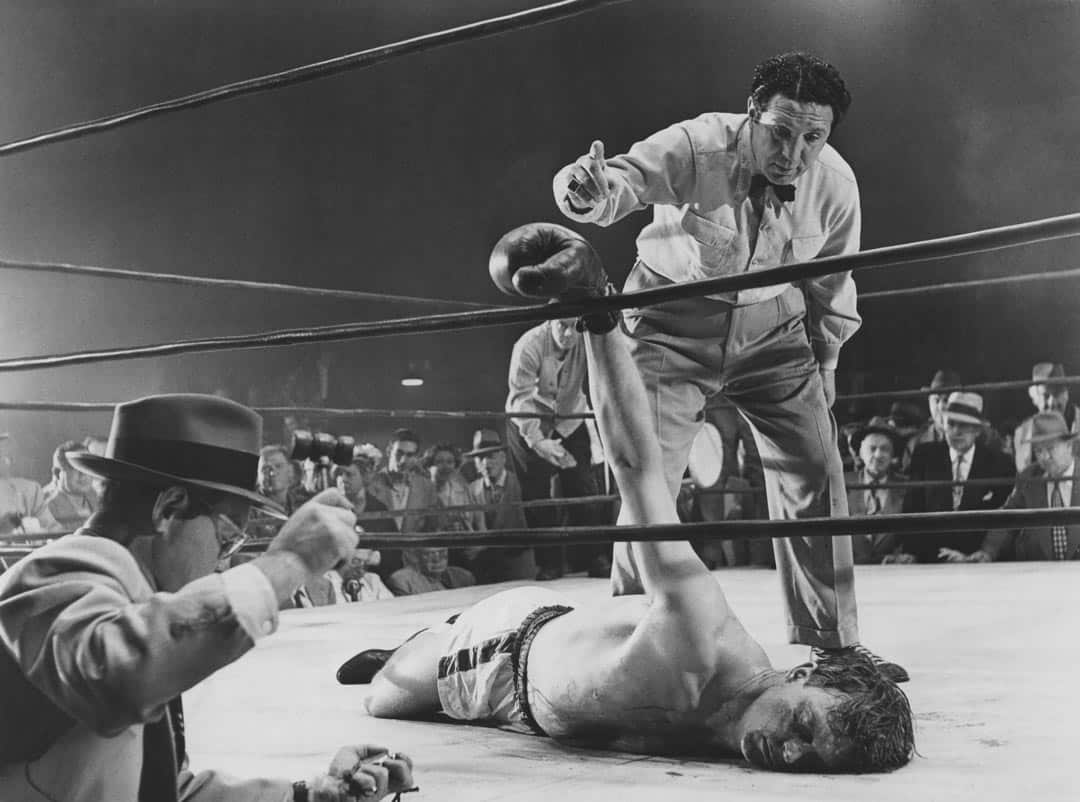
Don't be like him.
Mistake #2: Overpaying on fees (for decades)
Here is an easy, quick win for you. It's one that to this day, too many people underestimate.
Financial services companies are really good at siphoning off excessive fees. Like, REALLY good. Often, you don't even notice what they are doing. Or you are too busy to care and too distracted by seemingly more important things.
Have you heard of the "no-fees" stock trading app, Robin Hood?
Well, "no-fees" doesn't mean "free".
These free brokers sell their order flow to market makers who charge investors excessive prices for the shares they are buying. In essence, their service amounts to charging you hidden fees. If you don't know what I am talking about, read this 2018 investigation by Bloomberg.
There are pitfalls everywhere – the finance industry is a pool of sharks!
If you want to maximise your investment returns, you need to understand what fees you are paying and how they compare to the fees that other financial services providers charge for the same (or comparable) services.
Over the years, it adds up mightily if you overpay on fees. And I know for sure that many of you are because I regularly get emails from readers.
One illustrative example that you can use to shape your mindset is the investigation The Times carried out into the fees of St. James's Place, the British wealth management firm. Their series of articles showed that someone who invested GBP 130,000 into the company's investment funds for 30 years would end up paying an additional GBP 118,000 in fees compared to other funds that were essentially identical. That's a lot of extra money to have in your bank account, and it doesn't require taking any additional risk. A penny saved is a penny earned.
You could up your retirement lifestyle by a notch (or two) if you stayed on top of this subject.
For many years, I've primarily focussed on my investment returns and never bothered with any service fees. Had I spent more effort on this earlier on, I could have "earned" (i.e., saved) more money risk-free. Like, a lot!
We all live in the day and age of quick, easy price comparisons. Anything you need to know is available on the web.
Do yourself a favour and make use of this incredible resource.

Don’t fall victim to the fee-trickery that banksters are so good at.
Mistake #3: Remaining hung up on terms such as "Old Economy" and "value investing"
I started my investing career at a time when "value investing" was seen as the superior investment strategy. These were the days when you tried to find companies with tangible assets – such as land reserves – that weren't visible on their accounts. If you spotted "hidden reserves" before the rest of the market, you were onto a winner. It was traditional value investing, and it very much centred around the idea of buying physical, tangible assets.
Back in the 1990s, technology companies were still a side issue. The stock market had already seen the rise of Microsoft, SUN Computer, and Dell Computer. Overall, though, technology companies represented just one sector out of many others.
During the 2010s, I warmed up to the emerging players of the New Economy, and I let go of my obsession with buying tangible assets.
Overall, though, I wasn't quick enough to latch onto the incredible opportunities that presented themselves during the past two decades, thanks to the rise of new technologies.
That whole set of "FAANG" stocks – I missed out on them.
Looking back now, it's evident to me what had happened.
I had made my first serious money by investing in Old Economy stocks and applying traditional value investing.
Once something has proven to work, it is VERY hard to let go of it and switch horses. As a result, I changed my style of investing too slowly and missed out on incredible gains.
There is still an intense debate raging on whether "value investing" is going to stage a comeback eventually, and whether "growth investing" is a superior style of investing.
I believe that this entire term-based debate doesn't matter. It's not productive to try and separate between "growth" and "value". At the end of the day, growth is only worth something if it leads to cash coming in ("value"). It's all the same. A company might be labelled "growth" right now, but it's ultimately just another way of saying that the company is investing to increase its cash flow further down the road.
All it boils down to is this:
→ Can you purchase future cash flow at too low a price?
Looking at future cash flow – and future cash flow only – puts you into a neutral position for judging a company's investment prospects.
With this guiding strategy, you will be able to look for bargains everywhere but based on an objective measure.
In the end, it's all about cash, whether it comes from selling iron ore or Apple iTunes subscriptions.
Mistake #4: Believing that speaking to CEOs puts you at an advantage
You'll be surprised about this point, but I have strong feelings about it.
Never, ever speak to the CEOs of the companies you are investing in.
And I mean: NEVER, NEVER, NEVER!
It's very straightforward:
- CEOs cannot legally tell you anything that wouldn't already be available in print somewhere.
- They will woo and hypnotise you with their well-rehearsed spiel. Your objective judgment of the investment will suffer as a result.
Think about it. A CEO (or an investor relations person, for that matter) will have had months or years of practice in selling their investment story to the public. They will always be bullish, and they will be very good at convincing you.
I owe some of my most expensive investment mistakes to not following my own assessment and instead of listening to the management (usually, the CEO).
It's much more effective to form your opinion based on your own, independent analysis of the publicly available material. If anything, contact a company to fill in a few missing bits once you have finished your analysis. But don't allow them to put a bug in your ear.
I have long stopped attending shareholder meetings or trying to meet company representatives. On the whole, I am much better off analysing the evidence in the solitude of my lair. Successful investing requires you to be brutally honest and objective, and you need to be able to flip your view and move from "buy" to "sell" when the circumstances change. If you have a human relationship with a person at that company, it'll only taint your judgment.
Before you think of me as a total misanthrope or robot, I do enjoy going to conferences where I meet fund managers and other investors. I love feeding off other peoples' ideas (my latest research report was inspired by a fund manager who spoke at a conference in New York last December).
Fund managers and fellow investors are different from CEOs, though.
If I never spoke to another CEO in my life, I'd not miss out on anything. Because there is such a glut of information nowadays and no one seems to have time anymore to read, merely working through what's available in print can give you an edge (incredible, but true!).
Mistake #5: Allowing yourself to be distracted from managing your money
The costliest period of my investing career was the 2008/09 Great Financial Crisis (see point #1).
Why did I get caught up in the crisis?
Because I had taken my eyes off the ball.
It's so easy to get distracted or become complacent (or both!).
My portfolio had done spectacularly well after the 2001 to 2003 dotcom crash when I bought into bombed-out equities. As a result of all the new money I had, I got operationally involved with a few private equity investments – more for fun and ego than anything else. I also enjoyed travelling the world in a more touristy way. I was extremely distracted AND complacent.
When the crisis started to unfold in earnest, I was on the back of a horse in South Africa's Cape region and didn't even have a mobile phone signal for most of that week. When I did hear about how bad things were getting, I didn't spend enough time to think about the consequences but went on enjoying my trip.
It all became rather expensive in the end.
I can directly trace back quite a few of my bad decisions to my lack of focus at the time.
If you want to properly look after your investments, there is no such thing as a day off. Important news that affect your investments can strike at any moment. You always need to be alert, if only by having a clear head and a bit of time to critically think things through.
It isn't particularly popular advice to give, least of all in a world where others will tell you how easy and effortless investing can be.
We just witnessed the perfect example of why you need to ignore them all if you are serious about looking after your nest egg.
The coronavirus crash was the fastest in the history of the stock market. When the crisis broke, you had to react quickly:
- Were there any immediate technical aspects to take care of, e.g., did you have leverage that needed reducing?
- Did you need to reassess and potentially sell any of your investments?
- What new investments should you try to pick up to make the best use of the crisis?
These aren't questions that you can deal with efficiently on a sailboat crossing the Pacific Ocean.
Managing your investments and being serious about it requires a commitment. You need to be able to dedicate at least some time to it on an ongoing basis, and at times make it your temporary focus until things have blown over.
If you don't, then Mr Market will eventually serve you a can of whoop-ass. It happened to me, so don't let it happen to you.
Mistake #6: Not having two or three investment buddies to swap notes with
Let's face it, we all live in our bubbles, and we all have our blind spots.
If I could go back 25 years, I'd make sure that throughout my investment career, I'd always have a few buddies that I can share notes with.
You need a few friends who:
- Are well-informed and hold their own views.
- You can trust with the intimate details of your finances, and who do not hold back when calling out your BS.
- Are fun to talk to.
Call them buddies, colleagues, mentors, or whatever you like.
Your investing skills invariably get better if you regularly discuss your investments, strategies, the market and other aspects with people who you can have a frank and informed conversation with.
I do have these people now, but I didn't always have them. It cost me a lot, and I am not going to repeat that in the future.
Besides, you'll enjoy the comradery.
If you don't have the right set of friends just yet, start by reading regularly about the experiences of other investors. That's one of the reasons behind my "Blogs to watch" series where I point you to other finance and investing bloggers.
Mistake #7: Not learning early enough about shorting and hedging
I am an optimist by nature.
Thinking about things going downhill – and making money off it – does not come naturally to me.
Shorting is about making money off falling prices.
Hedging is about securing an investment against losses.
The boundaries where one stops and the other starts are blurry. For example, you can do hedging by shorting. There are many variations and strategies.
Looking back, I wish that I had spent more time early in my life to learn about shorting and hedging. It could have saved me a lot of money.
There will be periods when you can make additional money by shorting, and there'll also be periods when hedging will protect your wealth.
Implementing shorts and hedges is an entirely different game to buying stocks that you expect to increase in value. I probably know ten times more about "long" equity investments than "shorts".
The coronavirus crash served as a reminder for me to up my game in this regard. One of my projects for this summer will be to learn more about shorting, hedging, and using options.
My next step in this regard is one that at least my German readers can easily emulate: read two books that my stock market colleague and friend, Jens Rabe, has published – "Optionsstrategien für die Praxis: So sichern Sie sich an der Börse ein regelmäßiges Einkommen" and "Optionsgewinne mit System: Wie jeder an der Börse mit Optionen Geld verdient".
It'll be a while before I get as good at hedging and shorting as I am at "long" equity investing, but I intend to stay in this game for a few more decades. It's never too late to learn something new. If you've made a mistake in the past because of a lack of skills, then NOW is the best time to start acquiring this skill.
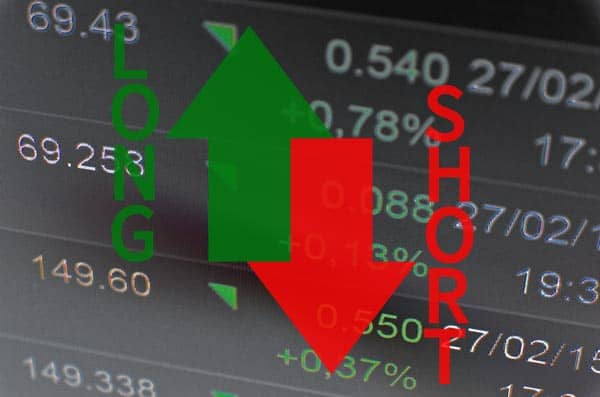
You have got to know about BOTH of these terms.
Mistake #8: Not being global enough in my investment outlook
This point will probably baffle you.
Given my reputation as a semi-nomadic globetrotter and international investor, how can I (of all people) not have been global enough in my investment outlook?
It's true, though.
There are SO many fantastic opportunities that I've missed out on because:
- I was too narrow-minded and prejudiced.
- I didn't travel enough to educate myself.
- I simply accepted it when my broker told me: "Sorry, we can't trade stocks over there." (Which was a bigger problem in the past than it is now.)
My biggest mistake in this regard was China.
I would have been ideally placed to latch onto the rise of China from the very beginning. In the mid-1990s, I spent a fair bit of time with a consultant who managed pioneering investments in China. At the time, China was not yet taken seriously by most people, and the Tiananmen Square massacre was still fresh on people's minds. Through my friend, I had access to information that the situation on the ground was already utterly different to how most investors perceived. I could have picked up Chinese assets at ground-floor prices.
There is an entire list of occasions that should have made me "get it".
- I was a regular in Hong Kong in the early 2000s.
- I travelled to all sorts of up-and-coming cities and regions in China in 2006.
- It all happened right under my nose.
But I didn't get it.
With regards to China, I simply had all sorts of prejudices. As it were, I visited one of the now infamous wet markets back in 2006. Let's just say the medieval savagery didn't enamour me with the idea of investing there. Rationally, though, most of my concerns wouldn't have held up to objective scrutiny. I held on to them regardless.
My lack of open-mindedness in some aspects cost me a lot of money, by way of missing out on the incredible rise of what is now the world's second-largest economy.
There were other cases that I missed out on.
How am I going to tackle my shortcomings in this regard?
Had it not been for the coronavirus, I would have travelled across China this summer. Not so much as a tourist, but with a focus on learning more about the country, its economy, and the available investments. Going forward, I aim to do one focussed research trip every year, and more extensive ones than I have done in the past.
You will get to read all about this on here. Just the other week, I featured an investment opportunity that reflects the long-term growth of Africa's tech industry. A whole number of readers wrote to me how they would never have come across this opportunity themselves, and thoroughly enjoyed reading something that was totally different from what they'd typically get to read about.
That's at the heart of Undervalued-Shares.com, and you can latch onto my ongoing learning about the world.

There are opportunities everywhere.
Mistake #9: Not hanging on to long-term investments for long enough
I bought my first Apple laptop in 2003.
At the time, purchasing an Apple computer made you an outlier. Just 4% of computer sales were Apple, nearly everyone else used PCs with Microsoft's operating system. Only nerds had an Apple.
Right from the beginning, it was clear to me that Apple had vastly superior products.
Not that many would have shared the assessment at the time. CNN Money reported in January 2003:
"Sad as it may seem to the Mac enthusiasts, it's a Windows world. Wall Street doesn't seem to care too much about Apple, either. Only two of the 14 sell-side analysts that follow the company have it rated a 'buy'."
In retrospective, this was a valuable lesson about how the corporate media often trails behind emerging trends.
I've seen all my friends struggle with their inferior Windows computers, but those with an Apple were extremely happy. All the clues were there.
I did buy Apple stock at the time because it was always clear to me that a growing number of people around the world were going to like these products.
If only I had had the discipline to stick to my long-term view of the company.
Apple stock was trading around USD 1 when I first invested in the company. It's now trading at USD 300. I can't remember when I sold, but it must have been within a year or two of buying and with just a small profit. Some other shiny object will have distracted me, and I flipped the position to reinvest the funds elsewhere.
Missing out on a rising price isn't a loss, but at times it feels even more painful than losing money.
I have similar regrets with Hypoport, a German software company that I featured on a previous version of this website in 2011. Back then, I highlighted the company's potential (and likelihood) of growing in size by multiple times. If only I had stuck to my guns. The stock subsequently rose by a factor of 55. Outside of that never-ending desire of wanting to chase those other shiny things, there would have been no reason not to simply hold on to it.
If you pick the right stocks, investing can be as easy as holding on to an investment for many years. You need to make sure you don't get wiped out by the inevitable crash along the way (see point #1). You also need to be very critical about continually checking if the company's circumstances may have changed (points #3, #4, #5, #6 and #8 all feed into that). But you also mustn't let go of a good investment if your thesis is proving correct and things are heading in the right direction. Also, it helps to have bought during an early phase and when the stock was cheap – which is what Undervalued-Shares.com is trying to help you with.
The tech opportunity in Africa that I mentioned in point #8 is an excellent example of that. Investors should probably stash it away for the next five to ten years.
Undervalued-Shares.com mainly focusses on long-term investment opportunities because I have learned how costly a mistake it is to be too focussed on the short term. That was a mistake that didn't so much as lose me money, but I missed out on making money. As I said, missing out can feel even more painful than losing.
Mistake #10: Forgetting about the need for humility
The stock market may well be the world's largest agglomeration of clever people.
You must never underestimate what others know and how far ahead of you they are. Also, there'll be plenty of people out there who have already experienced stuff that you can't even imagine exists.
As the old saying goes: "Pride will have a fall."
I made some of my costliest investment mistakes when I got cocky.
Put a post-it on your freezer that it's vital to show humility in your investing. Or make your investment buddies (see point #6) remind you occasionally.
Being humble, and keeping in mind that you don't know about 99% of all things, will save you a lot of money over the course of your investing career.
Debrief
As always, I love to hear from you. What did you think? Was this useful for you? Enjoyable? A total waste of your time?
Next Friday, part 3 of this series will come your way. It'll be a special aimed at my younger readers who are looking for a bit of inspiration and guidance where to go in life.
Blog series: How I work
There's more to "How I work" than this Weekly Dispatch. Check out my other articles of this three-part blog series.
Did you find this article useful and enjoyable? If you want to read my next articles right when they come out, please sign up to my email list.
Share this post:
Extra research report out now – for Lifetime Members only
I've just dug out another small-cap investment opportunity.
My latest investigative report reveals a company that can best be described as a new med-tech champion, destined to dominate the European market.
It is one of four extra research reports per year that are only shared with my most dedicated readers: Undervalued-Shares.com Lifetime Members. Because these stocks are thinly traded, I need to limit them to a smaller number of readers.
Lifetime Members enjoy all the benefits of Annual Members (my 10 best investment ideas every year, 2 special reports, regular report updates, email alerts etc.), plus a couple of extras:
- Priority booking of reader events and trips.
- Deeper engagement, such as involvement in my next book.
- Speciality investment opportunities.
The last point will get my Lifetime Members four additional reports per year.
If you, too, would like to access this small-cap investment opportunity (as well as all upcoming ones), I recommend you sign up now.



